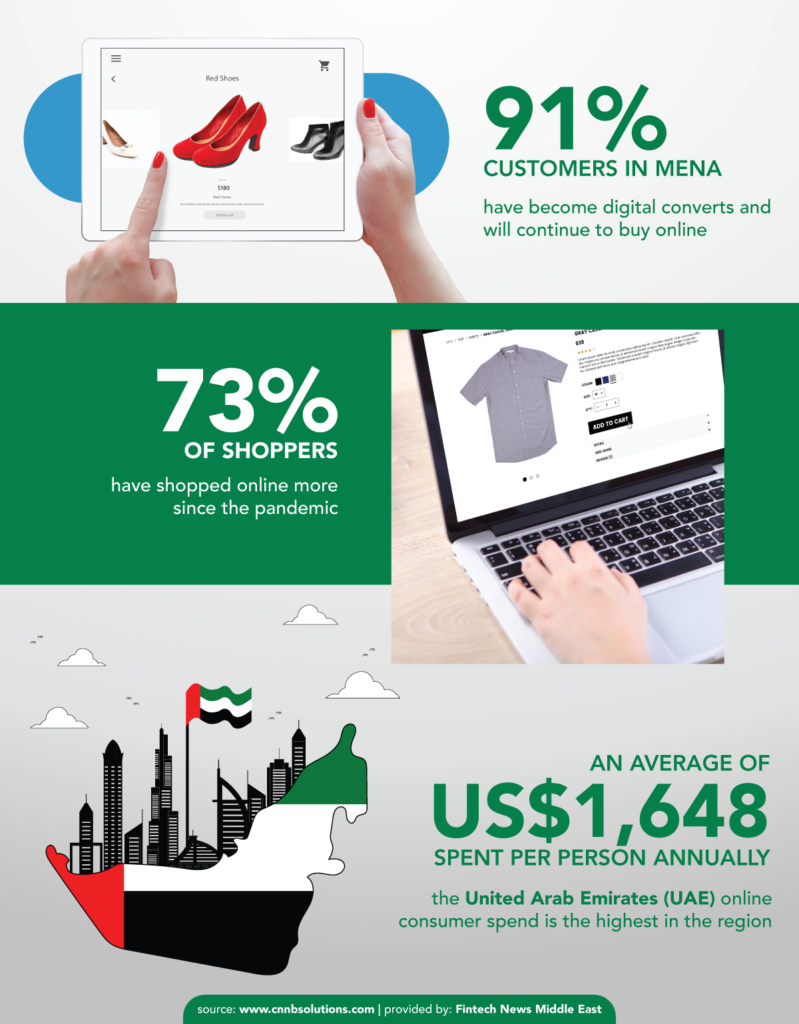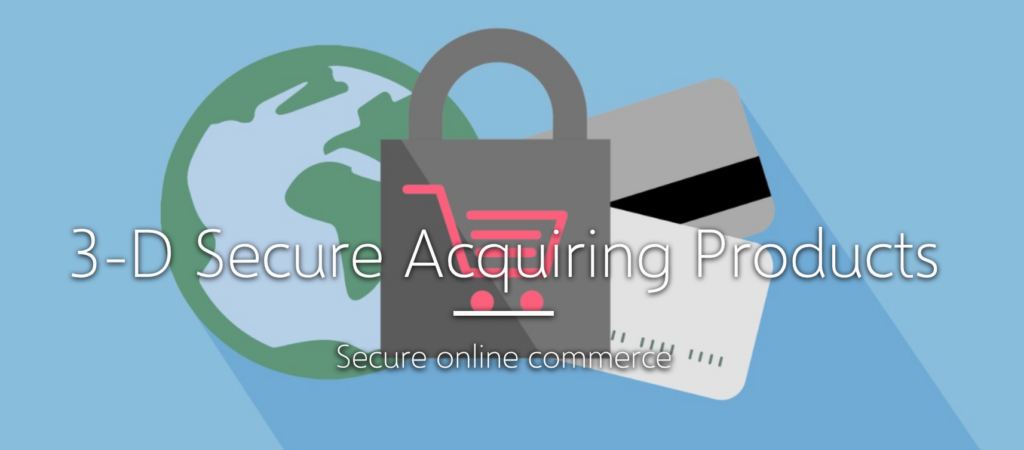The accelerated digitization brought on by the Covid-19 pandemic has boosted an already popular retail market in the Middle East and North Africa (MENA) region, bringing it to a new, larger, and global online sphere.
Marketplaces, financial services providers, and global luxury brands alike have taken advantage of the borderless nature of e-commerce shopping to enter the MENA space and reach the region’s big spenders – particularly those from the Gulf Cooperation Council (GCC) nations.
The CNNB 2022 MENA e-Commerce Report forecasts e-commerce sales in the region to hit US$50 billion this year, almost triple the US$18.6 billion recorded in 2016.
The report found that 91% customers in MENA have become digital converts and will continue to buy online, while 73% have shopped online more since the pandemic. Unsurprisingly, the United Arab Emirates (UAE) online consumer spend is the highest in the region, averaging an annual spend of US$1,648 per person.

But this booming digital commerce landscape is also introducing new risks, attracting criminals and fraudsters who are now looking to capitalize on the sudden growth in online spending to defraud both online merchants and customers.
This has impacted the payments space, particularly with regards to card-not-present (CNP) fraud , a category of fraud where the cardholder does not physically present the card at the time of payment. During the height of the pandemic in 2020, CNP fraud cost merchants an estimated US$35.54 billion globally.
That number is only projected to grow as more consumers shift to e-commerce as their primary channel for purchasing products and services, and as fraud attacks become more scaled and sophisticated.
MENA businesses are cognizant of this, and are projected to up their spending against cyber threats by 11.2% to US$2.8 billion in 2022, based on data from a Gartner study. Similarly, the CNNB report found that over 60% of MENA shoppers believe secure checkout is fundamental to a good online shopping experience.
How 3DS2.0 Revolutionizes the MENA e-Commerce Market
To prevent fraud during remote transactions, the 3D Secure (3DS1.0) protocol was introduced 16 years ago to add an extra layer of security to online card payments. For almost two decades, the online checkout process was cumbersome and took time as customers would be redirected to an authentication page on their bank’s website and key in an OTP (one-time password) sent to their phone.
With the majority of e-commerce sales today transacted in mobile-first environments, these pop-ups and diversions can alienate and even cause customers to abandon the checkout process, thereby negatively impacting merchants’ conversion rates.
MENA’s – especially the Gulf Cooperation Council (GCC) – typical e-commerce shopper is young, affluent, digitally-savvy and connected, and thus providing a seamless shopping experience is the key differentiator that sets payment leaders apart from the pack. Put simply, 3DS1.0 no longer has a place in MENA’s lightning-fast e-commerce market.
The introduction of the mobile-friendly 3DS2.0 protocol is revolutionizing the e-commerce market, offering MENA issuers and acquirers a new way to deliver a frictionless shopping experience while doubling down on cybersecurity in mobile-first environments.
With the addition of a software development kit (SDK), 3DS2.0 comprehensively integrates the card payments authentication process with mobile apps while incorporating biometric authentication within e-commerce apps as a security measure. Similar to an API (application programming interface), with 3DS2.0 merchants can ensure that the authentication process looks and feels consistent with the rest of the app .
Upgrade to 3DS2.0 or Be Left Behind
2022 will be the last year 3DS1.0 will be widely used, as both Visa and Mastercard will be discontinuing support or “sunsetting” for the old protocol this October. Already, Visa no longer offers liability shift (guarantees payments) authorized with 3DS1.0. By October, Mastercard will outright reject transactions secured via 3DS1.0.
Understanding the urgency of the matter and recognizing that 3DS2.0 is a competitive advantage in the finicky e-commerce space, MENA issuers and acquirers have been quick to respond. Payments powerhouses across the Middle East and Levant have partnered with global 3DS market leader Netcetera to handle their migration to the 3DS2.0 protocol.
Swiss software provider Netcetera boasts a slew of 3DSAcquiring Products, which include a merchant plug-in, a SDK, and an Access Control Server (ACS), which is approved by both EMVco (Mastercard’s parent company) and Visa.
With the clock ticking and only five months left until 3DS1.0 will be sunsetted, Netcetera has already helped numerous MENA payment service providers (PSPs) accelerate their 3DS2.0 adoption while maximizing both time-to-market and return-on-investment before the October deadline.
Customers in the Middle East worked with Netcetera to implement the latest 3DS2.2, supported by Netcetera’s ACS. It uses several factors such as transaction limits and whitelisting to bypass unnecessary steps and enable a seamless, frictionless shopping experience for PSPs’ clients and end users.
To further enhance payment security, some customers also opted for 3DS-compliant software RiskShield, which assesses the risk levels of transactions in real-time. RiskShield and other software add-ons are offered by Netcetera and their partners to give issuers and acquirers that additional data-backed layer of confidence in their 3DS2.0-compliant solutions.
Others worked with Netcetera to jointly offer Software-as-a-Service models that ensure their customers the convenience of safely and securely authenticating themselves for e-commerce transactions, with two-factor authentication to verify users’ identities.
Don’t get left behind: accelerate your payments offerings and make your 3DS2.0 upgrade today with the help of Netcetera’s 3DS Acquiring Products. To learn more, drop by Netcetera’s exhibit at Seamless Middle East 2022 from May 31 to June 1, 2022 at the Dubai World Trade Centre, or visit www.netcetera.com.









No Comments so far
Jump into a conversationNo Comments Yet!
You can be the one to start a conversation.